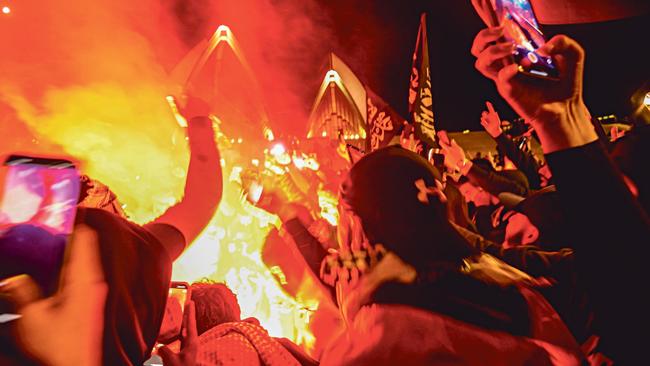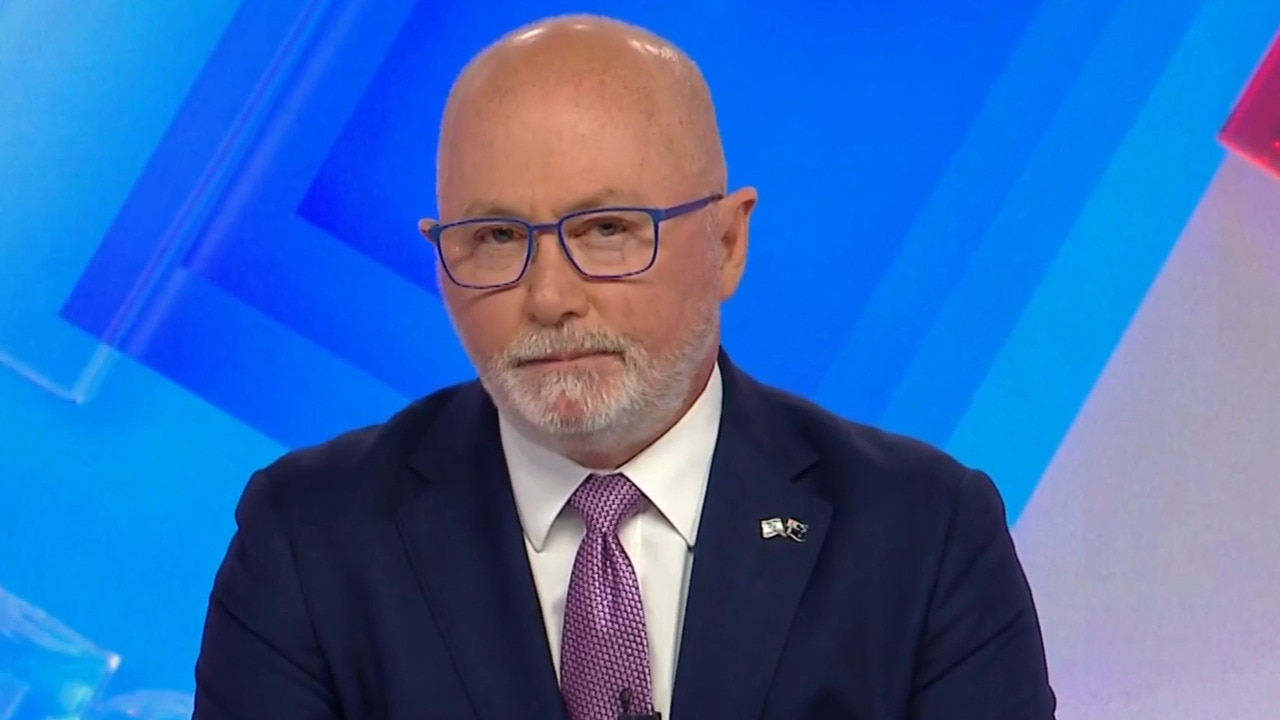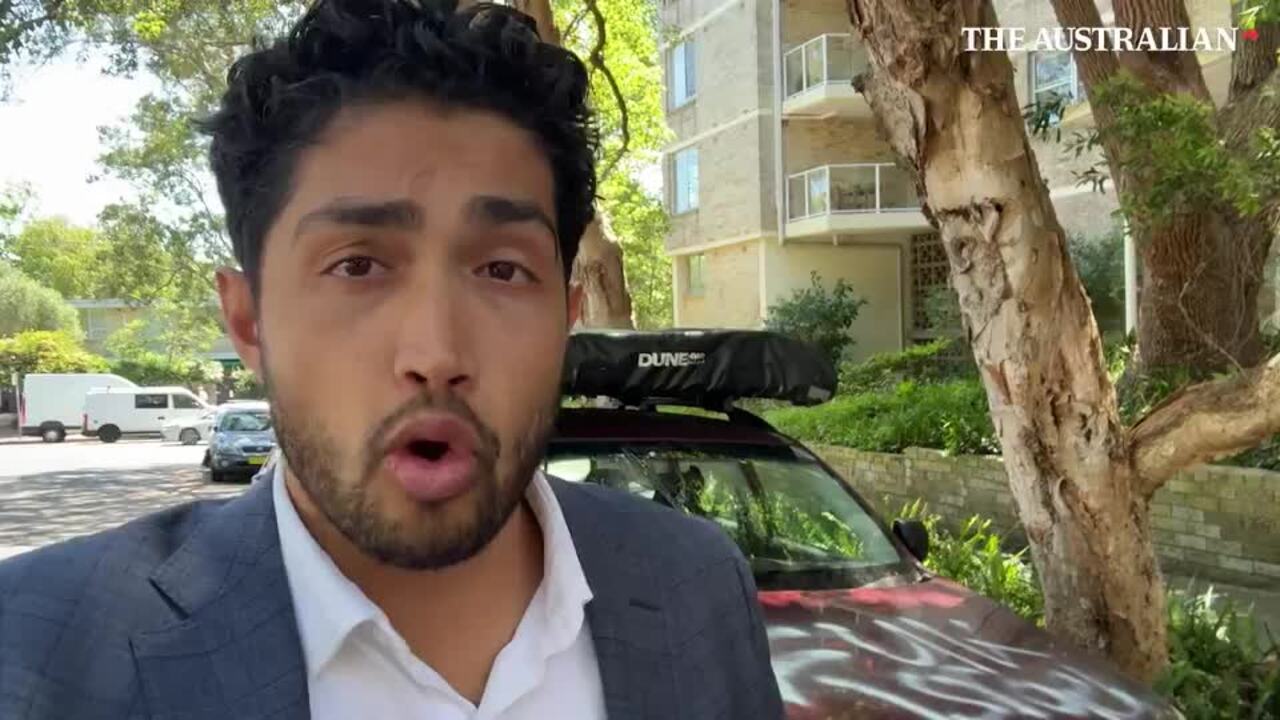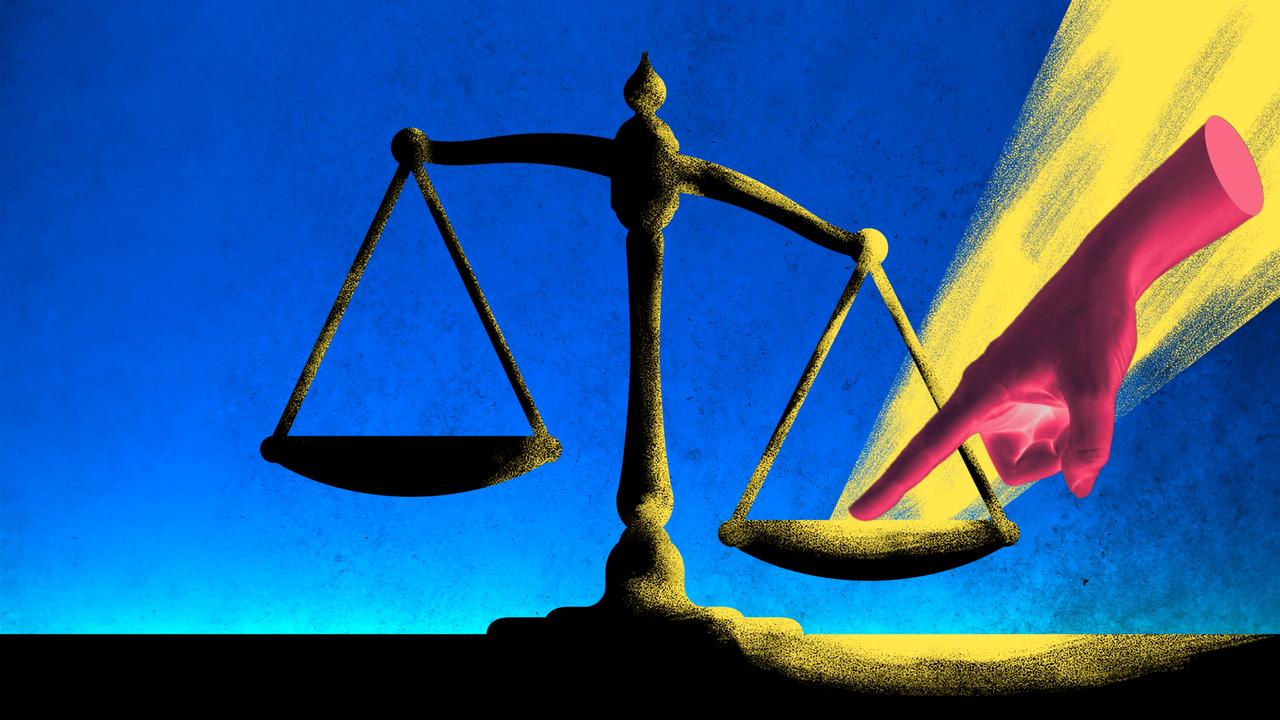
The places for anti-Semitism in Australia are many and growing, the latest being the streets of Woollahra in Sydney.
A car torched and gutted, more graffitied with slogans such as “F..k Israel” and, ominously, “PKK coming”, a restaurant and the entrance to a block of flats also vandalised in what is described as a “prominent Jewish area of Sydney’s eastern suburbs”.

The threat to Australian Jews could not be more plainly on display. These latest attacks add to an explosion of threats, violence and intimidation directed against Jews since the Hamas atrocities of October 7 last year.
The Prime Minister describes this as “deeply troubling”, but don’t worry because “I have trust in our law enforcement agencies to deal with this”. Nothing on the domestic counter-terrorism front seems to rouse in Albanese a sense of urgency or stir a personal drive to show strong leadership.
Albanese delivers the opposite of strong leadership. His talking point about “no place for anti-Semitism in Australia” is delivered without energy or conviction. It falls flat because we have 13 months of evidence proving the statement false.
Since the demonstration at the Sydney Opera House on October 9 last year celebrating the Hamas attack, four features of the so-called pro-Palestinian protest movement have become clear.
First, the protests have become louder and more threatening, if not openly violent.
Second, policing has been passive, indeed facilitating organised disruption of central business districts. Third, vandalism has grown against politicians’ offices, Jewish businesses, war memorials and areas where Jews are thought to live.
The fourth feature is that our government has worked off the back of the protests to become more openly, and covertly, hostile to Israel. Cabinet ministers and Labor backbenchers seem to have open slather to reimagine their own pro-Palestinian foreign policy. Labor’s motivations span from an ideological dislike of Israel, fantasy projections about a two-state solution where none realistically will exist for decades, through to poorly conceived attempts to appease hardline Islamist elements with their electorates.
Taken together, these factors create a permissive environment where protesters are becoming more extreme in their behaviour.
The protest movement has become an incubator for radicalisation. We no longer have to worry just about kids radicalising online in isolation. A ready-made network exists on our streets, where ideology can be shared, hatreds cultivated, violent techniques taught and the boundaries of public tolerance tested.
The attacks on property in Woollahra bring to the surface some concerning elements in the rise of anti-Jewish behaviour in Australia. Torching a car is a new level of violence, a step beyond spray-painting graffiti on buildings or statues. There is a pattern here: violence starts with small transgressions and grows.
The attacks are also targeted. This is a move from central business districts out to a “prominent Jewish area”. Remember the “Where’s the Jews?” chant, which the NSW Police seemed to think was more acceptably benign than “Gas the Jews”? The Woollahra violence shows that protesters know where the Jews are.
The attackers also tried to be covert. It is reported that “two hooded men wearing dark clothing and face masks were captured on CCTV fleeing the scene”.

This is more than just protesting as a form of street performance. This is a deliberate plan to do harm.
Then there is the message “PKK coming”. Perhaps the NSW Police will find a more benign interpretation, but I take it to refer to the Kurdistan Workers Party, a group listed as a terrorist organisation by successive Australian governments since 2005.
Being listed as a terrorist group requires the government to be “satisfied on reasonable grounds” that the organisation “is directly or indirectly engaged in, preparing, planning, or assisting in or fostering the doing of a terrorist act; or advocates the doing of a terrorist act”.
In May 2019 the NSW Supreme Court sentenced an individual, Renas Lelikan, to a three-year Community Corrections Order for being a member of the Kurdistan Workers Party.
In September this year the ABC reported that Turkish authorities arrested a Melbourne woman, Lenna Aslan, at Istanbul airport “on suspicion of conducting activities for the PKK Kurdish separatist group”.
Whatever the merits of these cases, it is clear that the PKK is in Australia.
The Australian Greens have long supported what they described as the “Kurdish freedom struggle”. In March 2022, just before the federal election, the Greens were reported as seeking “an urgent review of the terrorist listing of the Kurdistan Workers Party (PKK) by the Australian Parliamentary Joint Committee on Intelligence and Security. There is a real distinction between a liberation movement and a terrorist organisation, and it is time our government understood that.”
The Greens should explain if they think the phrase “PKK coming” is a naked threat towards Jews or an expression of a “liberation movement”. A burnt-out car and extensive graffiti vandalism makes the context clear.
Elements of this violence in Woollahra suggest a new phase in Australia’s escalating anti-Jewish crisis but, in another way, these acts are as old as anti-Semitism itself. The painted sign on a door. Flames licking in the night. We know where you live. We are coming. And everywhere the passivity of governments, police, authority and the absence of leadership.
I’m talking about the kind of leadership that sets moral standards with decisive action, not that equivocates in the face of violence because of a supposed election benefit.
Albanese could not have made a bigger mess of dealing with this domestic security challenge. As with so many policy areas, he talks process and platitudes while threats and smoke hang heavy in the air.





What will it take to jolt Anthony Albanese from his fatuous opinion that “there is no place for anti-Semitism in Australia”?